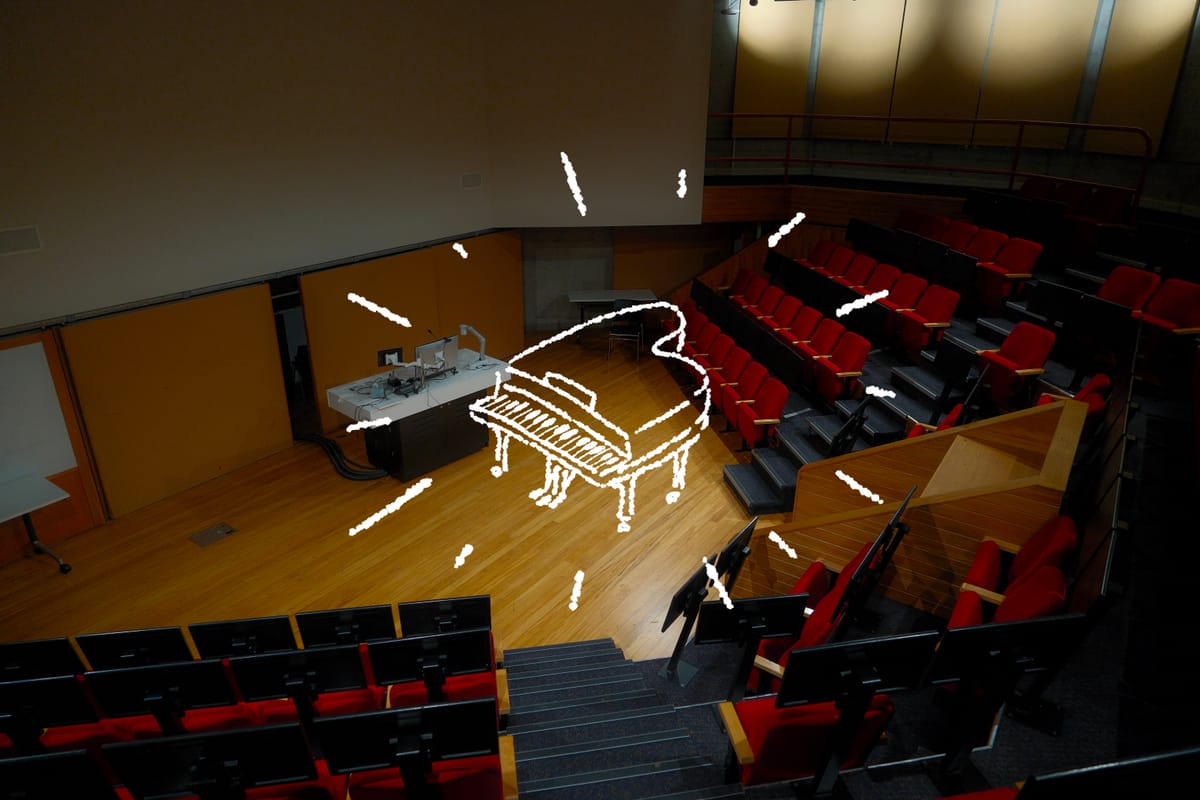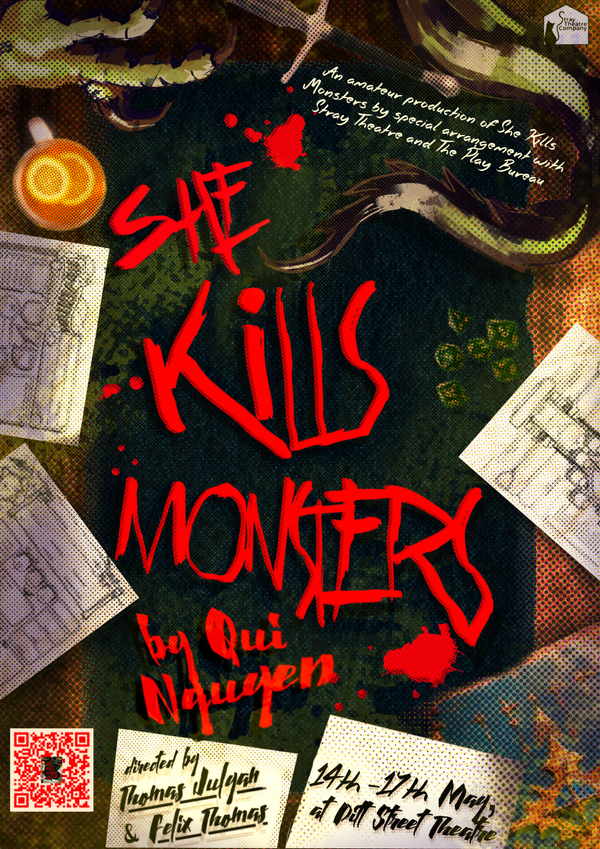The Case for Communal Campus Pianos
“There are two means of refuge from the miseries of life: music and cats.”

Anyone who has had class in the Conference Centre’s Design Theatre will know of large, sleek black instrument sitting off to the side of the lectern. A piano. A Steinway grand. For those of you reading whose niche is not musical instruments, Steinway is the Rolls-Royce of pianos. The sparkle and clarity of glass. We’re talking Rolex. Apple. Michelin star. Carnegie Hall has them, so does the Sydney Opera House. When else does the opportunity to play on a Steinway simply fall into your lap? But before you drop your copy of Craccum and beeline for 423-348 to see it for yourself, I regret to inform you that the Steinway been removed from the room since the beginning of Semester One this year.
As someone who would make trips from far corners of the campus to the Theatre during “no current booking” hours solely with the intention of playing on that piano, I know that I am not alone in my grief. Over my many visits to the Conference Centre, I’ve overheard all kinds of genres through the wooden double doors; from anime soundtrack anthems, to Debussy, to Aretha Franklin. And on numerous occasions, as I’m leaving the Theatre after a cathartic jam session, I have run into students who had been waiting patiently for their turn to play. None of us belong to the Faculty of Creative Arts and Industries (CAI). There is an unofficial society of on-the-side pianists, casual jammers, and hidden musicians for whom this Steinway is a sacred creative place, a beloved haunt, one of life’s unexpected luxuries.
Dare I pipe up that CAI students are not the only ones who need pianos? Many students who are not studying music at a tertiary level but are still passionate about enjoying and making music no longer have access to pianos in their lives. Some of us have moved away from the piano in our family home. Some of us have student debt, fussy neighbours, or no space to house such an instrument. We may not be able to commit enough time to music on a regular basis, but we would still jump at the chance to sit down in front of a piano and welcome back the muscle memory – just like how one wouldn’t hesitate to pull over in the town their oldest friend lives for a reunion if they’re passing through.
University should mean more to us as students than simply a learning institution. It is a third space; where we form unexpected but powerful relationships, collage together into communities, and throughout it all, learn more deeply about ourselves. How many of us have fallen away from basic human vehicles of expression, human pleasures such as playing instruments, singing, dancing, and drawing because we feel that we need to ‘be good at it in order to do it’? How many of us never gave it a try at all for that very reason?
“There are two means of refuge from the miseries of life: music and cats.” This is a quote from Albert Schweitzer, the 1952 Nobel Peace Prize winner who dedicated over 50 years of his life to working as a medical missionary in Gabon, Western Africa. To describe his mission as “challenging” would be a massive understatement. Before Schweitzer and his wife Helene Bresslau were able to build a hospital from corrugated iron and locally available materials, the surgical operating room was a chicken coop. Swathes of patients flocked in; many had travelled for days to receive treatment. Interruptions came in the form of personal health risks and World Wars. A pedal-piano accompanied Schweitzer to his mission post in the town of Lambaréné, and playing music became his source of strength, a vital connection to his Christian faith. Music helped him survive.
During my semester exchange at the University of Sydney last year, I scouted out at least six pianos dotted around the general campus accessible to students of all study backgrounds. Granted, some were easier to access or in more fortunate condition than others, and this was made transparent in a handy online guide created by USyd’s Piano Society. Now, this is not saying that the University of Auckland must blow cash imminently to purchase communal pianos and put them all over the place. There is good reason why the School of Music currently reserves its practice rooms for music students only, and I can understand why the university might be concerned about students mistreating the campus facilities or taking them for granted. Our beloved Te Kāuta Student Kitchen and Lounge on Level 2 Kate Edger Information Commons first opened its doors in mid-2022, but has quickly turned from sparkling new into a room housing a collection of suspiciously stained microwaves, mostly-broken hot water units, and blocked sinks (oh hello, somebody’s day-old cup noodles). Respect our campus, respect one another, be brave enough to share our luxuries, and we all get nice things.
Then what about those wanting to serenade a crush, reunite with a childhood hobby, or simply experience the joy of being a human through music? What should they do in the meantime? Of my knowledge, the only remaining pianos on campus open to all students are located in the McLaurin Chapel, though please do be aware of any other students using the space for quiet study or worship. There’s a Yamaha spinet and a Yamaha upright, with sticking keys and sticky keys, respectively. It’s no Steinway, but the acoustic of the chapel and the afternoon light gently filtering in through the oaks outside might make up for it.





